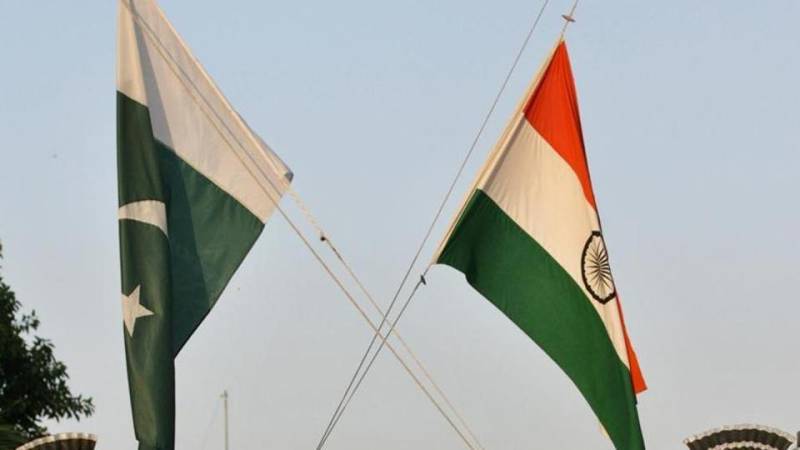Islamabad/Lahore - The two days meeting of Permanent Indus Commission (PIC), starting here today (Monday), will discuss the design aspects of Pakal Dul, Lower Kalnai and Miyar hydroelectric plants being constructed by New Delhi and other water related matters between Pakistan and India.
The 113th Meeting of Permanent Indus Commission (PIC) is being held on March 20-21 after a gap of almost two years – last such meeting took place in May 2015 in New Delhi.
Earlier yesterday, a 10-member Indian delegation led by India’s Indus Water Commissioner PK Saxena and comprising external affairs ministry officials and technical experts arrived in Lahore through Wagah border and departed for Islamabad in the afternoon.
Indus Water Commissioner of Pakistan Mirza Asif Baig will head Pakistani side in the talks, the agenda of which includes discussions on the design aspects of Pakal Dul (1,000 MW), Miyar (120 MW) and Lower Kalnai (48MW) hydroelectric plants, flood data supply by India and program of tours of inspection and meetings by Pakistan and India to the sites of their interest in the Indus basin.
According to Water and Power ministry spokesman, the long pause in annual PIC meetings occurred after Pakistan Commissioner announced failure of the talks after protracted discussions at Commission level on design aspects of Kishenganga (330 MW) and Ratle (850 MW) projects that India is constructing on Kishenganga/Neelum River (a tributary of Jhelum River) and Chenab River, in 111th meeting of PIC in Jan-Feb 2015.
Though India had offered to continue discussing the matters, Pakistan could not afford delays in the resolution process as construction of the two plants was continuing. After the two days meeting between the water secretaries of the two states in Delhi on July 12-13 2016, both the disputed matters were referred for third party resolution through the World Bank. Pakistan has been pursuing the matter of regular meetings of the Permanent Indus Commission with India to bring the other remaining issues under discussion. Despite various media statements causing speculations, Pakistan showed restraint and kept on making efforts for resumption of talks.
The ministry spokesman said Pakistan appreciates India’s decision to resume the regular talks and welcomes the Indian team to Islamabad. He said Pakistan believes that continuation of purposeful talks with sincere efforts from both sides would lead to resolution of the matters at the Commission level, in accordance with the provisions of the IWT which has been a symbol of peaceful management of Trans-boundary water resources.
Pakistan would continue its efforts for resolution of the matters according to the provisions of the IWT and expects that “our goodwill will be reciprocated from the Indian side”, the spokesman said.
According the experts the construction of more dams by India, in Indian Held Kashmir, will further affect the inflow of water into Pakistani dams and rivers. Pakistan has time and again showed serious concerns over the design of the hydroelectricity projects being built by India in the Indus river basin saying it is the violation of the treaty brokered by the World Bank in 1960.
In September last Pakistan approached the World Bank amid Indian threat to revoke the 56-year-old treaty and requested for Arbitration Article IX of the IWT. Article IX deals with arbitration of disputes between both the countries concerning the interpretation or application of the treaty. Under the treaty, the World Bank has an important role in establishment of the Court of Arbitration.
The World Bank had earlier declared the formation of court and appointment of neutral expert, but ironically it announced a “pause” in both the separate processes initiated by Pakistan and India to allow the two countries to consider alternative ways to resolve their disagreements.
Media reports earlier suggested that India kept making last minute efforts to include Kishenganga and Ratle hydroelectric projects in the discussion list for talks beginning today, but Pakistan flatly refused saying it has already waited too long for a bilateral solution.
“We will not hold any talks on both the controversial projects (Ratle and Kishanganga) because their case has already been referred to World Bank,” said an official of Indus Water Commissioner office of Pakistan.
India had suspended the annual PIC talks in Sept 2016 – ostensibly in wake of Uri attack in Occupied Kashmir. But these talks are mandatory under IWT, and if India fails to hold the talks till March 31, it shall be violating the treaty.
Some officials said the meeting was going to be held with the efforts of World Bank which brokered the treaty between the two countries in 1960.
Speaking to Press Trust of India (PTI) earlier, before the departure of Indian team to Pakistan, an Indian govt official said Delhi is “always open” to discuss and resolve concerns Pakistan have over its projects under Indus Waters Treaty bilaterally.
The official, however, reiterated that there will be “no compromise” on India exploiting its due rights under the 57-year-old pact. However, the agenda for the meeting, taking place nearly six months after India decided to suspend talks on the pact, was yet to be finalised.
Asked whether the delay in reaching consensus over agenda for the meeting will leave little time to resolve issues, the official replied in negative. “We always go into such meetings with optimistic mindset. In the past too, there had been delays in finalising agenda for the meeting, yet solutions were achieved,” the official added.






